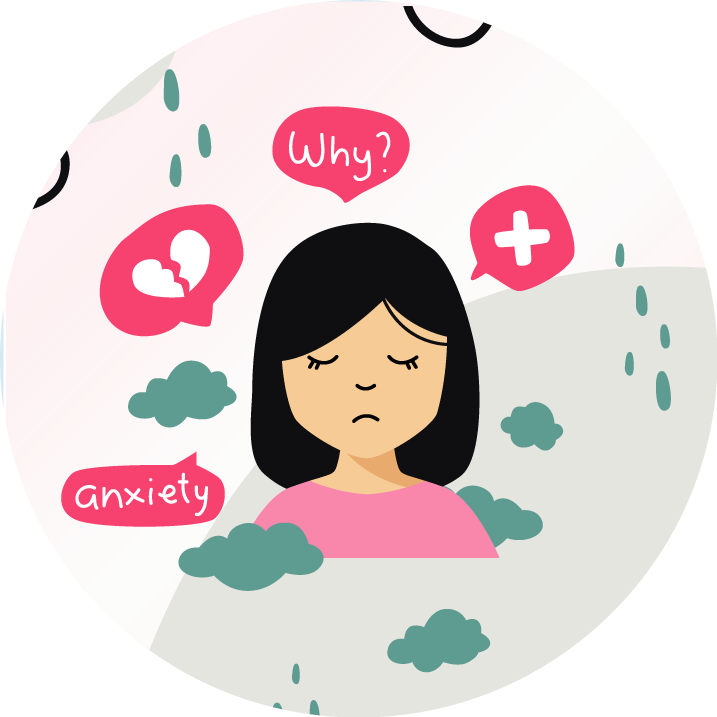Thoughtfulness and Mindfulness to Enhance Relationship Quality

Thoughtfulness and Mindfulness to Enhance Relationship Quality
July 15 2025 TalktoAngel 0 comments 286 Views
In any close relationship—whether romantic, familial, or platonic—quality matters more than quantity. Many relationships in today's fast-paced, distracting society suffer from a loss of presence more than a lack of time. Two powerful tools that can transform relationship dynamics are thoughtfulness and mindfulness. When practised intentionally, these qualities foster deeper emotional connections, reduce conflict, and enhance satisfaction.
Understanding Thoughtfulness and Mindfulness
Being considerate and cognizant of the needs, desires, and feelings of others is referred to as being thoughtful. It manifests through small gestures of care, listening attentively, remembering important details, and showing empathy. Thoughtful people are attuned to their partner’s emotional state and seek to nurture the relationship in meaningful ways.
Mindfulness, on the other hand, is a mental state of being fully present, conscious, and engaged in the moment without judgment. Rooted in ancient meditation practices, mindfulness enhances awareness—not only of ourselves but also of our interactions with others. When applied to relationships, it means listening without interrupting, observing without reacting impulsively, and being open to feedback and vulnerability (Kabat-Zinn, 2003). Mindfulness and thoughtfulness work together to create a foundation of mutual respect, trust, and emotional safety.
How Thoughtfulness Enhances Relationship Quality
1. Fostering Emotional Security: Thoughtful actions reassure a partner that they are seen, valued, and cared for. Whether it’s making a favourite meal after a long day or offering a listening ear without solving the problem, these small acts speak volumes. They build emotional security, allowing both partners to feel safe expressing needs and vulnerabilities.
According to Reis and Shaver (1988), responsiveness to a partner’s emotional needs is a key element in promoting intimacy and satisfaction. Thoughtfulness is one way this responsiveness is expressed.
2. Reducing Resentment: Many relationship breakdowns are not caused by major betrayals, but by the accumulation of unspoken disappointments. Forgetting anniversaries, dismissing feelings, or being too preoccupied with personal concerns can create emotional distance. Thoughtfulness helps mitigate this by encouraging proactive care and empathy. Consistent thoughtfulness leads to reciprocity—partners tend to mirror kind behaviours, leading to a more harmonious relationship.
3. Strengthening the Emotional Bank Account:- Psychologist John Gottman (1999) introduced the concept of the “emotional bank account”, where each positive interaction is a deposit and each negative interaction a withdrawal. Thoughtful gestures—compliments, gratitude, supportive words—act as deposits, creating a strong buffer against occasional conflicts or stressors.
The Role of Mindfulness in Relationship Health
1. Improved Communication:-
Mindfulness helps individuals stay grounded during discussions, especially during conflict. Instead of reacting defensively, mindful communication encourages listening, pausing, and responding thoughtfully. This promotes mutual understanding and reduces the chances of escalation (Carson et al., 2004). Mindful couples are more likely to validate each other’s feelings, use "I" statements, and resist the urge to criticize or interrupt—qualities associated with long-term relationship success.
2. Regulation of Emotions
Mindfulness increases awareness of internal emotional states, allowing individuals to identify triggers and manage reactions before they become destructive. It can help someone recognize, for instance, that their frustration stems from work stress rather than from their partner’s behaviour. This self-regulation enhances emotional stability and reduces reactivity, which is crucial for maintaining healthy and respectful communication.
3. Increased Compassion and Acceptance
A mindset of curiosity rather than criticism is fostered by mindfulness, which develops non-judgmental awareness. This helps partners accept each other’s flaws and embrace imperfection as part of the human experience. Relationships thrive when partners feel loved for who they are, not just for what they do.
A study by Barnes et al. (2007) found that individuals who practiced mindfulness exhibited greater relationship satisfaction, empathy, and emotional intelligence.
Practical Ways to Integrate Thoughtfulness and Mindfulness
1. Practice Active Listening
Pay close attention to what your partner is saying. Put your phone aside, make eye contact, and reflect what they’re saying to show you understand. This simple act conveys respect and deepens emotional intimacy.
2. Engage in Small Acts of Kindness
Leave a note, give an unexpected hug, or remember something they casually mentioned last week. These thoughtful actions build trust and appreciation over time.
3. Schedule Mindful Check-ins
Regularly set aside time to connect—free from distractions—to ask each other:
- “How are you feeling lately?”
- “Is there anything you need more or less of from me?”
These intentional conversations enhance attunement and responsiveness.
4. Use Mindful Breathing During Conflict
If a disagreement arises, pause to take a few deep breaths. This helps deactivate the fight-or-flight response and allows for more constructive dialogue.
5. Create Shared Rituals
Whether it’s a weekly walk, evening gratitude practice, or morning coffee together, rituals encourage presence and bonding, helping couples anchor their relationship in consistency and mindfulness.
When Thoughtfulness and Mindfulness Are Missing
Relationships lacking in thoughtfulness and mindfulness often show signs of emotional neglect, miscommunication, and unresolved conflict. Partners may feel unheard, taken for granted, or emotionally drained. Over time, this can lead to disconnection, resentment, and even separation.
Couples facing such difficulties can benefit greatly from relationship counselling, where trained professionals help identify communication patterns, enhance emotional awareness, and rebuild thoughtful and mindful interaction strategies.
Incorporating mindfulness-based therapies such as Mindfulness-Based Cognitive Therapy (MBCT), Emotionally Focused Therapy (EFT), or Acceptance and Commitment Therapy (ACT) can help couples develop deeper awareness, improve communication, and build emotional resilience. Online counselling platforms make these evidence-based approaches more accessible than ever, allowing couples to seek support conveniently and confidentially.
By practicing mindfulness and making intentional efforts to be thoughtful, couples can cultivate relationships that are resilient, supportive, and emotionally fulfilling. These habits not only strengthen the bond between partners but also lay the foundation for lifelong emotional growth, empathy, and mutual respect.
Contributed By: Dr. (Prof.) R. K. Suri, Clinical Psychologist and Life Coach, &. Mrs. Sakshi Dhankhar, Counselling Psychologist.
References
- Barnes, S., Brown, K. W., Krusemark, E., Campbell, W. K., & Rogge, R. D. (2007). The role of mindfulness in romantic relationship satisfaction and responses to relationship stress. Journal of Marital and Family Therapy, 33(4), 482–500. https://doi.org/10.1111/j.1752-0606.2007.00033.x
- Carson, J. W., Carson, K. M., Gil, K. M., & Baucom, D. H. (2004). Mindfulness-based relationship enhancement. Behavior Therapy, 35(3), 471–494. https://doi.org/10.1016/S0005-7894(04)80028-5
- Gottman, J. M. (1999). The seven principles for making marriage work. New York: Crown Publishers.
- Kabat-Zinn, J. (2003). Mindfulness-based interventions in context: Past, present, and future. Clinical Psychology: Science and Practice, 10(2), 144–156. https://doi.org/10.1093/clipsy/bpg016
Leave a Comment:
Related Post
Categories
Related Quote

“Remember: the time you feel lonely is the time you most need to be by yourself. Life's cruelest irony.” - Douglas Coupland

“Anxiety is a thin stream of fear trickling through the mind. If encouraged, it cuts a channel into which all other thoughts are drained.” - Arthur Somers Roche

"It is okay to have depression, it is okay to have anxiety and it is okay to have an adjustment disorder. We need to improve the conversation. We all have mental health in the same way we all have physical health." - Prince Harry

"To know when to go away and when to come closer is the key to any lasting relationship. " - Doménico Cieri Estrada

“Stress is an ignorant state. It believes everything is an emergency.” - Natalie Goldberg
Best Therapists In India
































SHARE